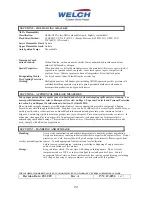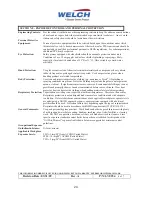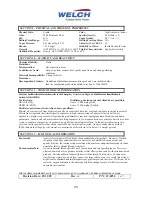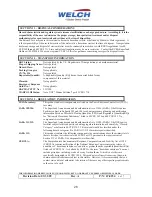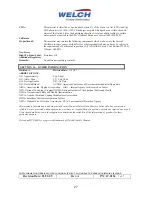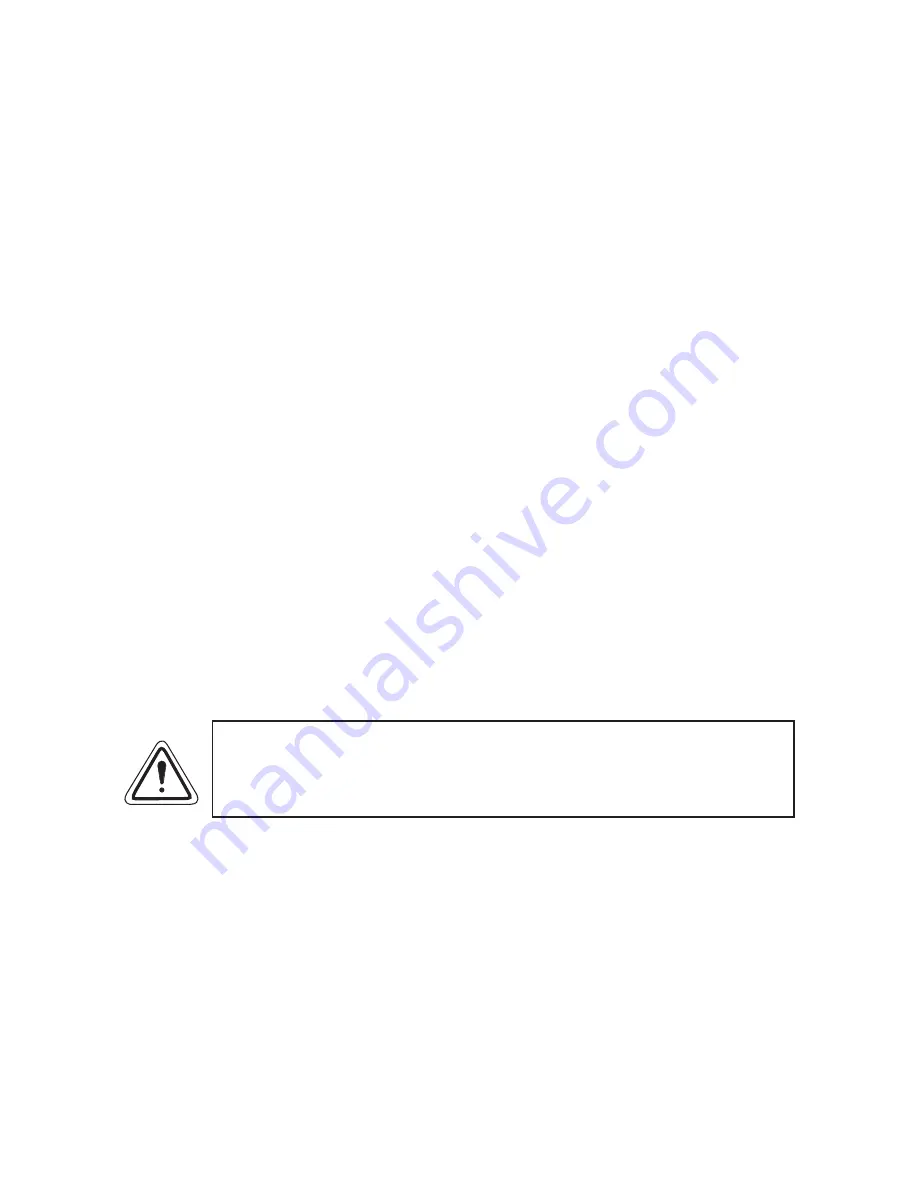
12
Section 4: TROUBLE-SHOOTING GUIDE
4.10
Poor Vacuum Readings
1. Disconnect vacuum pump from your vacuum system.
2. Obtain 1 gallon of DUOSEAL oil, 1 gallon or larger clear plastic container, clear drain hose (1/4 inch ID by at
least 2.5 feet long), rubber gloves, goggles, apron and pliers.
3. Carry out a forced oil fl ush (See Section 3.3b) if motor can turn pumping mechanism without excessive noise.
If pumping mechanism cannot be turned by motor, have pump sent into factory repair center.
4. Check ultimate vacuum with thermocouple gauge. If reading is still unsatisfactory, consult with Welch Technical
Service after checking for leaks in your connections.
4.20 Noisy
Pump
1. Locate noise source on your vacuum pump (motor, belt, pump).
2. If motor makes noise:
. Check for loose bolts on motor mount.
. Motor may need to be replaced
3. If belt makes noise:
. Pulley may be bent. If so, replace.
. Loose belt, tighten by loosening bolts on motor and moving motor away from pump until belt exhibits a 1/2 inch
defl ection.
4. If pump makes noise: vanes may be sticking, carry out a forced oil fl ush.
5. If noise level is still unsatisfactory, consult with WELCH Technical Service at (847)676-8800, Ext. 1.
4.30
Excessive Oil Mist
1. Check oil level. Maintain the level between the two lines on the oil window during operation. Too high a level
will cause excess oil mist.
2. Determine the vacuum level in your system with a thermocouple gauge or manometer. Be sure the pump is
operating at a pressure of 10 Torr or lower for continuous operation.
CAUTION
If not, discuss application with Welch Technical service before
proceeding to prevent oil from overheating and breaking down
resulting pump failing.
3. A system leak(s) or degassing can cause excessive oil mist. Locate and seal the vacuum leaks. High vapor
loads may require a larger pump to compensate.
4. An oil eliminator can be installed for coalescing the oil mist from the exhaust gases. If an oil mist eliminator
is already installed, the element may need to be replaced if saturated with oil. Open up oil mist eliminator and
examine the element; replace if needed.
5. Check the oil condition for any visible change in color or consistency. Contaminants in the oil can add to the
amount of oil exhausted. Carry out a forced oil fl ush if contamination is discovered. (See Section 3.3b.).























